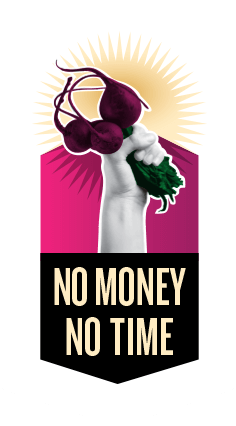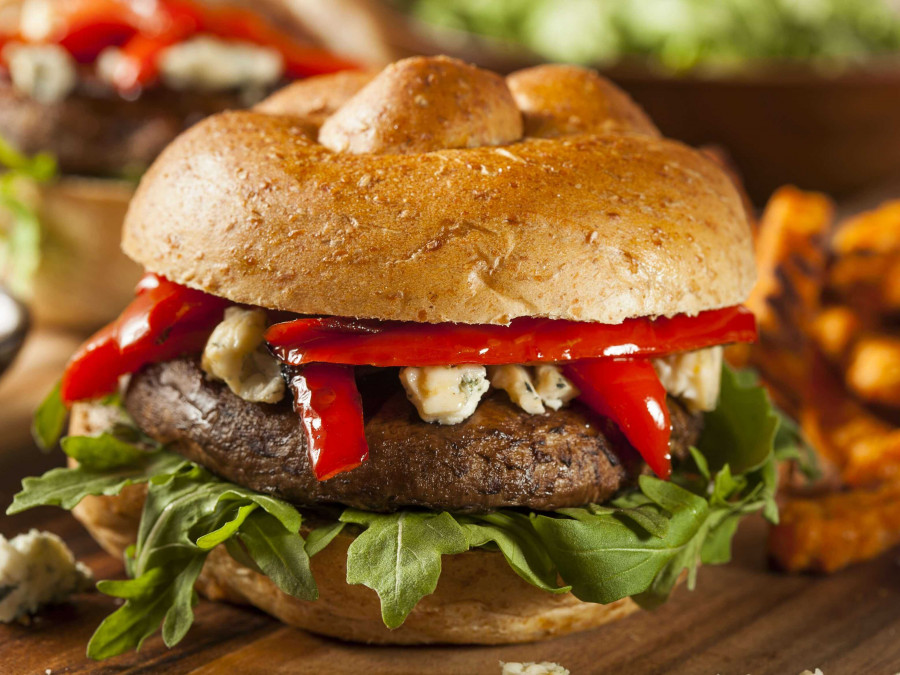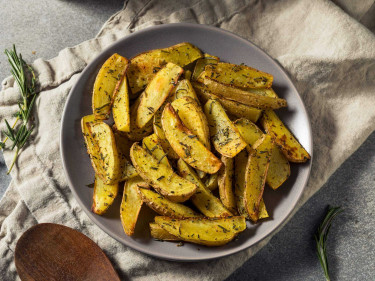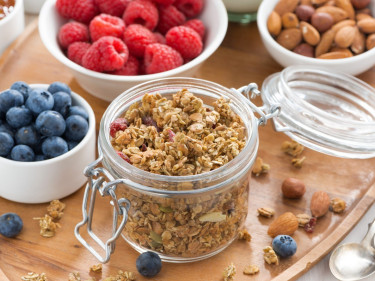Serves = 4
- 1 tablespoons dried oregano
- 2 garlic cloves, minced
¼ cup extra virgin olive oil
¼ cup lemon juice
- 1 red or yellow capsicum
- 4 large flat mushrooms
- 200g low-fat ricotta cheese
- 1 tablespoon parmesan cheese
- 4 wholegrain buns
- 1 cucumber
- 1 baby cos lettuce
- ½ red onion










